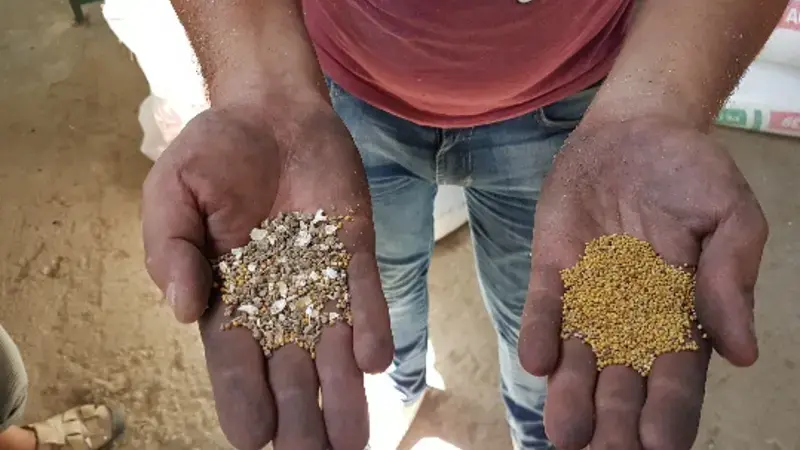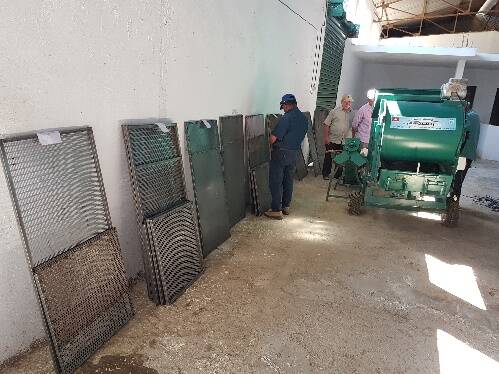ICARDA Develops Mobile Seed Treatment Unit Prototype with Tunisian Partners

ICARDA and its national partners in Tunisia designed and developed a prototype of a “mobile seed cleaning and treatment unit” which has been locally manufactured at a low cost. One unit costs 12,500 TND (about 4,350 USD) and has a capacity of about 800 kg/hour. In December 2019 four mobile seed cleaning and treatment units have been distributed to farmers’ cooperatives each having between 150 and 350 members. These cooperatives are located in different IFAD-CLCA and CRP livestock projects target areas (North-Western and Central regions of Tunisia), and they have participated with funding 10% of the costs. Over 1,000 small-scale farmers will benefit directly from these units.
Many small-scale farmers in Tunisia prefer using their own farm seeds because of the insufficient supply of forage seeds and to save costs. The quality of these farm seeds is generally low as they are normally cleaned manually, so the final product still contains some unproductive seeds (broken seeds or small-sized seeds). The results of using these poor-quality farm seeds are low forage yields and lower incomes.
In order to boost the production of leguminous forage crops, the CLCA and CRP livestock projects introduced special-sized metal sieves for the machine prototype in May 2020, which allows the cleaning of leguminous forage seeds. The four cooperatives have participated with 50% of the total costs of 8,300 TD (about 3,025 USD) for 11 sieves to improve their faba beans, vetch, and berseem seed production.
With the help of these mobile seed cleaning and treatment units, members of these farmer associations can significantly increase their seed quality and consequently their barley fodder production. In addition, the unit can serve as an income-generating asset for the associations as farmers pay a small renting fee to use the machine. The project will closely monitor and coach these associations to ensure that the units are managed sustainably.
Learn more about the initiative

